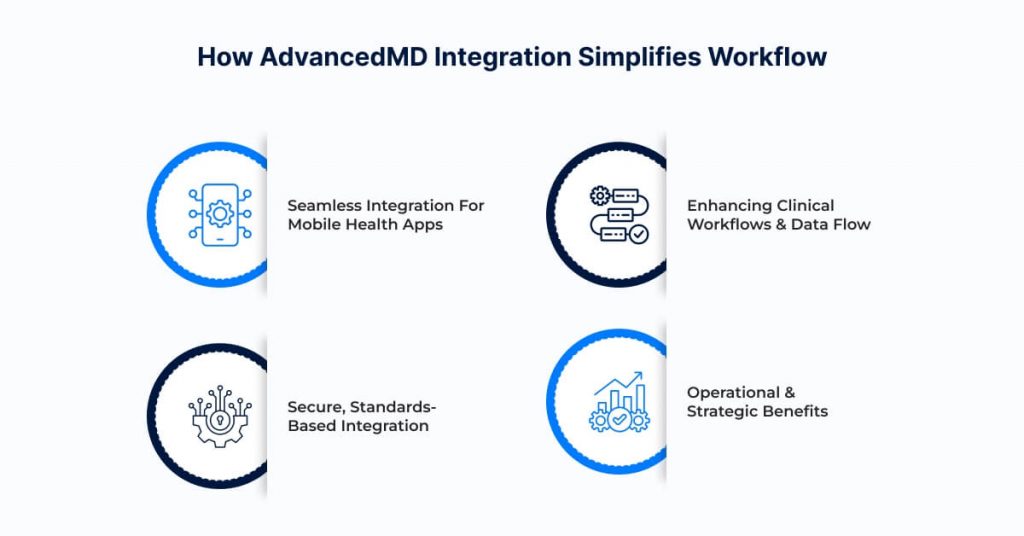AI agents are software programs made to watch healthcare data by themselves. They look at electronic medical records (EMRs), customer management systems, billing setups, and payer portals. Unlike old automation that follows fixed steps, AI agents make decisions on the spot. They check live data, do complicated tasks, handle exceptions, and learn from their actions to improve.
In healthcare, AI agents help a lot with revenue cycle work. They manage tough jobs like getting prior authorizations, verifying eligibility, handling denials, and tracking claims in real time. They cut down the need for people to do these tasks manually. This helps hospitals make fewer mistakes, get payments faster, and follow payer rules better.
Companies like Jorie AI say they have seen up to an 80% drop in manual work for revenue cycle tasks after using AI agents. These AI agents know when prior approvals are needed, send denied claims to the right teams with reasons, and watch payer rule changes to stop claim denials early.
Unlike fixed-step automation, AI agents use healthcare knowledge. They understand billing codes and clinical records. This lets them handle complex workflows on their own. This change moves healthcare work away from slow, error-prone manual processes to smooth and quicker operations.
The Role of AI Agents in Enhancing Healthcare Staff Productivity and Patient Care
Healthcare workers in the U.S. often feel tired because of many repetitive tasks. These include typing data, scheduling appointments, handling paperwork, and answering phone calls. AI agents can automate these jobs. This helps reduce pressure on medical staff.
AI does not take away healthcare jobs. Instead, it lets staff focus on more important work like coordinating care, planning revenues, and making clinical decisions. Dr. Aaron Neinstein, who works with healthcare AI, says AI agents act like “workforce multipliers.” They do routine tasks like managing denials, scheduling, and transcribing referrals. This lets staff handle more patients without hiring more people.
Studies show AI cuts down repeated work. This makes workers happier and lowers burnout. When staff do not have to spend time following up manually or resubmitting claims, they can spend more time with patients.
AI agents work all day and night, keeping operations steady. They stop delays caused by human breaks or handoffs. This helps patients get quick access, with less time on phone holds and shorter wait times.
Healthcare groups report these benefits from using AI:
- Faster claim handling that improves cash flow
- Fewer abandoned claims thanks to better compliance and fewer errors
- Better patient access with faster scheduling and prior approvals
- More staff time for quality patient care instead of paperwork
AI and Workflow Automation: Supporting Healthcare Operations Efficiently
AI workflow automation plays a big role in running healthcare operations, especially in the U.S. where healthcare systems are complex. AI workflows connect many systems—EMRs, billing software, customer platforms, and payer portals—to manage tough tasks with exceptions. They only ask humans for help when needed.
Integration Without Replacement
AI agents can work with current healthcare IT without needing expensive system changes. They use APIs and no-code tools to plug in and handle workflows behind the scenes. This way, medical offices can start using AI quickly with little interruption.
Autonomous Decision-Making
Unlike old automation, which uses fixed rules, AI agents study incoming data and act right away. For example, if a prior authorization is needed for a procedure, the AI agent finds out by itself, collects the needed papers, and sends the request. If a claim is denied, the agent figures out why and sends it to the right team for appeal fast.
Fail-Safe Escalation
AI agents have safety plans. They send difficult or odd cases to human staff right away. This keeps decisions correct and meets rules.
Real-Time Learning and Reporting
AI agents keep track of results—like claim approvals, denials, and how patients respond. They use data to improve their work automatically over time, without needing people to reprogram them.
Impact on Patient Access and Staff Workload
One common challenge is managing patient access well, especially in busy specialties with lots of paperwork. AI helps by automating appointment scheduling, referrals, and contact center questions via voice, text, or chat. This cuts phone hold times and makes sure patients get messages about appointments and reminders on time.
AI also helps clinical teams by automating tasks like reviewing charts and submitting reports. This simplifies following rules and keeping quality high.
How Generative AI and Intelligent Automation Are Shaping Healthcare Jobs
Generative AI and smart automation are extending AI use beyond simple automation. They help with complex knowledge tasks, create insights, and make content for clinical and administrative teams to help them decide better.
Generative AI can write patient communication, analyze difficult data for diagnoses, and give strategic suggestions. This lets healthcare workers focus on jobs that need human thinking, care, and creativity—things AI cannot do.
Studies say 83% of business leaders think AI and machine learning greatly help creativity and add value. U.S. healthcare groups get benefits as AI frees workers from writing reports and tracking claims. Staff can spend more time on personalized patient care and important plans that improve health outcomes.
Also, workers need to learn new skills in data analysis, workflow managing, and watching over AI tools to work well with these systems.
Effects on Workforce Satisfaction and Retention
Automating repetitive jobs lowers burnout, a big problem in U.S. healthcare. Workers who are freed from routine tasks feel more engaged and satisfied with their jobs. Less after-hours work helps balance work and life, which is important to keep skilled staff in healthcare.
Tools like Microsoft Copilot and Power Automate show how AI can cut down paperwork, speed up approvals, summarize meetings, and give real-time insights. These changes lead to faster decisions and better teamwork in healthcare.
Challenges and Strategic Considerations for Adoption
Though AI agents bring benefits to healthcare workflows, adopting them needs careful planning. Challenges include:
- Connecting AI with different healthcare IT systems without causing problems
- Being clear to staff about job security to ease worries
- Training workers to work with AI tools
- Following strong ethics rules to protect patient data and fairness
- Regularly measuring AI’s effect on care results and staff workflows
Success with AI depends on leaders making it clear that AI supports human jobs, not replacing them. Involving staff when choosing and setting AI systems helps gain acceptance and makes sure solutions fit real needs.
The Outlook for Medical Practices and Healthcare Systems in the U.S.
As AI agents take over repetitive tasks in healthcare, U.S. medical leaders have a chance to improve efficiency and patient care. Cutting manual work by up to 80% in revenue tasks means faster claim processing, fewer mistakes, and better financial results.
Staff also gain from having less paperwork, so they can focus on talking with patients, doing complex clinical tasks, and planning strategies. Patient experience improves with shorter phone holds, faster prior approvals, and timely communication.
Looking ahead, healthcare providers who use AI agents and smart automation will be better able to handle growing patient needs with current staff, keep costs low, and improve care quality even while rules change often.
Frequently Asked Questions
What is an AI agent in healthcare?
An AI agent is a software system that autonomously observes healthcare data environments like EMRs or CRMs, makes dynamic decisions based on learned rules, and executes tasks in real time without constant human input.
How do AI agents differ from traditional automation?
Unlike traditional automation, which follows preset scripts to handle repetitive tasks, AI agents dynamically make decisions and handle complex, variable processes such as prior authorization, eligibility verification, and real-time claim tracking.
What roles do AI agents play in revenue cycle management?
AI agents continuously monitor multiple systems, act autonomously, escalate edge cases to appropriate staff, and learn from outcomes, leading to faster reimbursements, fewer errors, and reduced staff time spent chasing information.
Can AI agents replace healthcare jobs?
No, AI agents support overworked teams by eliminating repetitive tasks, allowing skilled staff to focus on higher-value activities like patient coordination, revenue strategy, and problem-solving rather than replacing jobs.
Can AI agents integrate with existing healthcare systems?
Yes, AI agents are system-agnostic and integrate across EMRs, CRMs, billing systems, and payer portals through APIs and no-code frameworks, eliminating the need for expensive rip-and-replace implementations.
What measurable ROI do AI agents provide?
Healthcare organizations report up to 80% reduction in manual intervention, faster claim resolution, fewer write-offs, improved compliance with payer rules, increased patient access, and better staff bandwidth when using AI agents.
How do AI agents and traditional automation work together?
Traditional automation handles repetitive, rule-based tasks like claim submission, while AI agents manage decision-based and exception-driven workflows, allowing healthcare operations to be fast, adaptive, scalable, and resilient.
What features should be looked for in an AI agent solution?
Ideal AI agent solutions should have healthcare-native intelligence, autonomous workflow management, system-wide integration (CRM, EMR, billing, payer portals), real-time learning and reporting, and fail-safe escalation for complex cases.
What are real-world examples of AI agents improving healthcare revenue cycle workflows?
Examples include AI agents triaging prior authorizations by identifying and preparing documentation proactively, routing denied claims to proper queues with relevant information, and monitoring payer rule changes to prevent denials.
Why is eliminating phone holds important and how do AI agents contribute?
Eliminating phone holds reduces patient and staff frustration by automating prior authorization, claims tracking, and rule monitoring tasks through AI agents, thus maintaining workflow momentum without needing manual phone queue interactions.
The post The Future of Healthcare Jobs: How AI Agents Support Staff by Automating Repetitive Tasks and Enabling Focus on Strategic Patient Care first appeared on Simbo AI – Blogs.






